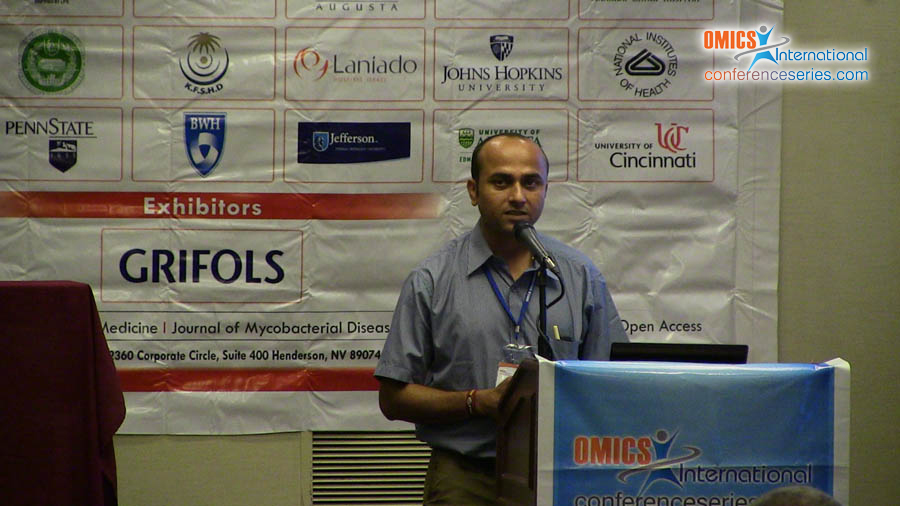
Amarjit Mishra
National Institutes of Health, USA
Title: Dendritic cell specific DNA-dependent protein kinase mediates Th2 airway inflammatory responses to house dust mite
Biography
Biography: Amarjit Mishra
Abstract
The innate signaling pathways for Th2 immunity activated by inhaled antigens are not well defined. DNA-dependent protein kinase (DNA-PK) is a nuclear protein serine/threonine kinase that acts as a molecular sensor in DNA damage and mediates ligation of double stranded DNA break repair, V (D) J recombination and telomere stabilization. Yet, the role of DNA-PK in Th2 immune responses to allergic asthma remains to be completely elucidated. Since DNA-PK can regulate innate immunity and pro-inflammatory signaling pathways, we hypothesized that it might also modulate adaptive Th2-mediated immune responses to house dust mite (HDM) antigen. In the present study, we report that DNA-PK regulates myeloid dendritic cell (DC)-dependent allergic sensitization and Th2 immune responses to HDM. We found that HDM induces DNA-PK phosphorylation in DCs via generation of reactive-oxygen species. Next, the adoptive transfer of HDM-pulsed CD11c+ bone marrow-derived DCs (BMDCs) from Prkdcscid mice or CD11c+ BMDCs from wild-type (WT) mice that had been treated with the pharmacologic DNA-PK inhibitor, NU-7441, or the Akt kinase inhibitor, GDC0068 had an impaired ability to induce HDM-specific airway inflammation in HDM-challenged WT recipient mice. This confirms that Akt is downstream of DNA-PK signaling in DCs. CD11c-specific deletion of DNA-PK in mice (DNA-PKfl/fl; CD11c-Cre) displayed a similar phenotype of reduced allergic sensitization and Th2-mediated airway inflammation as compared to DNA-PKcsfl/fl. In addition, adoptive transfer experiments using CD11b+myeloid DCs isolated from mediastinal lymph nodes of HDM-challenged DNA-PKfl/fl; CD11c-Cre mice to WT mice demonstrated impairment in antigen presentation that limits their ability to induce allergic sensitization and Th2-mediated airway inflammation. Moreover, feeding NU7441-containing chow before and after HDM-challenges to WT mice suppressed mucous cell metaplasia as well as airway inflammation and airway hyper-responsiveness. Our findings highlight a novel function for DNA-PK in myeloid DCs where it mediates antigen presentation and the induction of Th2 immune responses to HDM in the lung. Collectively, these data suggest that DNA-PK contributes to airway inflammation and that targeting DNA-PK kinase activity may be a noveltreatment approach for allergic asthma.


